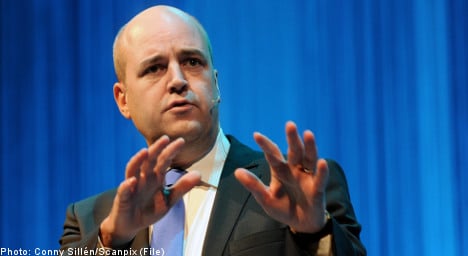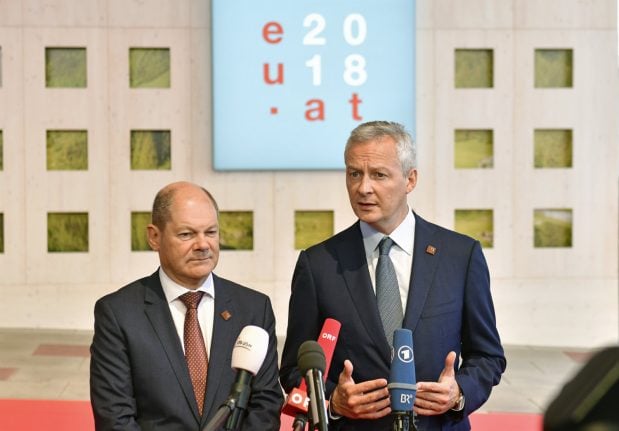Introducing eurobonds to average-out the cost of borrowing for the crisis-hit countries is the “totally wrong method,” Reinfeldt was quoted by the Dagens Industri financial daily as saying.
Eurobonds “send wrong signals in both directions,” said the Swedish premier, whose country is not a member of the eurozone.
He lamented, according to Dagens Industri, that such a measure would push up borrowing rates for countries with well-managed economies while countries in need of reforming their economies would see rates artificially lowered, paving the way for over-consumption.
Instead of artificially boosting the struggling economies, Reinfeldt insisted that the answer lay in “more national reforms to increase competitiveness (and in) getting the national states to work by getting rid of corruption.”
The topic of eurobonds has split the 17-nation bloc and was the main sticking point at an informal EU summit last month.
France, the European Commission and several other member states believe that eurobonds could represent the best way to exit the crisis crippling the eurozone.
Germany had been steadfastly against introducing such bonds, believing both that it would end up picking up the tab and that it would reduce the pressure on debt-wracked countries to tackle their deficit problems.
Reacting to the outcome of elections in Greece on Sunday, where the euro-friendly conservative New Democracy party won a narrow victory, Reinfeldt meanwhile said the result was positive in the sense that there now “at least is a possibility” that a Greek government could be created.
This in turn would improve the possibility of Greece being able to remain in the eurozone, he said, according to Dagens Industri.
“However,” he stressed, “it is absolutely not possible to say the danger is over.”
“Many negotiations remain,” he said, adding that it would be a step in the right direction if Greece could get everyone, “also the richest, to start paying taxes.”



 Please whitelist us to continue reading.
Please whitelist us to continue reading.
Member comments